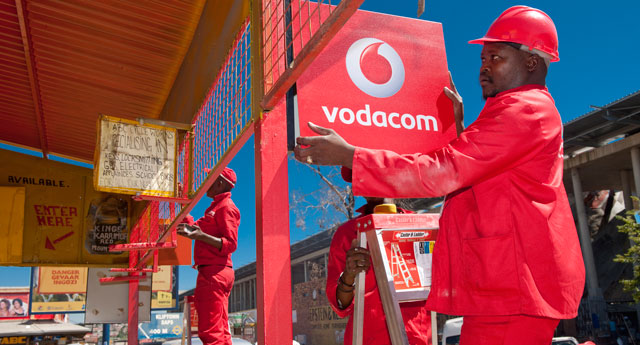
A stake in Vodacom is back up for sale following the collapse of a previous deal in May that was aimed at increasing black ownership of the mobile operator.
The Vodacom shares being sold by the Public Investment Corp are valued at about R6bn, according to people familiar with the negotiations, who asked not to be identified because the discussions are private. That equates to about 2,6% of Vodacom, Africa’s biggest wireless carrier by market value.
The PIC is in talks with a number of black investors, according to CEO Dan Matjila, who declined to discuss the details.
No favourite has emerged, and a deal structure hasn’t yet been decided, Matjila said by phone.
One of the groups includes Vodacom chairman Peter Moyo, one of the people familiar with the talks said. The PIC is Africa’s largest money manager with R1,9 trillion in investments, most of that overseeing South African government workers’ pensions.
An increase in black ownership would help Johannesburg-based Vodacom meet government rules that are part of the country’s effort to compensate those discriminated against during the apartheid era that ended in 1994.
Vodacom is currently 18,7% owned by black investors, compared with 39% for crosstown rival MTN Group. A 30% black-ownership minimum was a condition in a South African broadband spectrum auction that was delayed in September, though those requirements are currently in flux.
The Vodacom suitors include NMT Capital, a firm co-founded by Moyo, along with executives Sango Ntsaluba and Thabiso Tlelai. They started a predecessor to NMT Capital in 2002, with backing from the South African unit of London-based insurer and investment manager Old Mutual, where Moyo was an executive. NMT’s only institutional investor is Old Mutual Life Assurance, according to the firm’s website.
To address potential governance issues relating to Moyo’s involvement, NMT will take part in a bigger consortium that won’t be led by Moyo, said Nsaluba, who is the the investment firm’s chairman.
“This is a deal that we liked as an investment company and we are looking at it,” NMT’s Nsaluba said. “We are comfortable that all corporate governance issues were dealt with at Vodacom.”
While the PIC doesn’t need Vodacom’s approval to sell its shares, the carrier takes an active role in increasing its black ownership. Any transaction would take place through a well-governed, transparent process, Vodacom spokesman Byron Kennedy said in response to a question about potential conflicts regarding Moyo’s role.
Moyo didn’t respond to an e-mailed request for comment.
In May, the PIC abandoned a planned sale of shares in Vodacom to a group that included a former executive of the carrier, Romeo Kumalo. Kumalo isn’t participating in the current talks.
The government last year sold its 14% stake in Vodacom to the PIC for about R25bn. The PIC now owns about 12% of Vodacom, while UK-based carrier Vodafone has about 65%. The stock has declined 4,4% this year, valuing the company at R217bn.
About 88% of the PIC’s investments come from the South African Government Employees Pension Fund. — (c) 2016 Bloomberg LP




